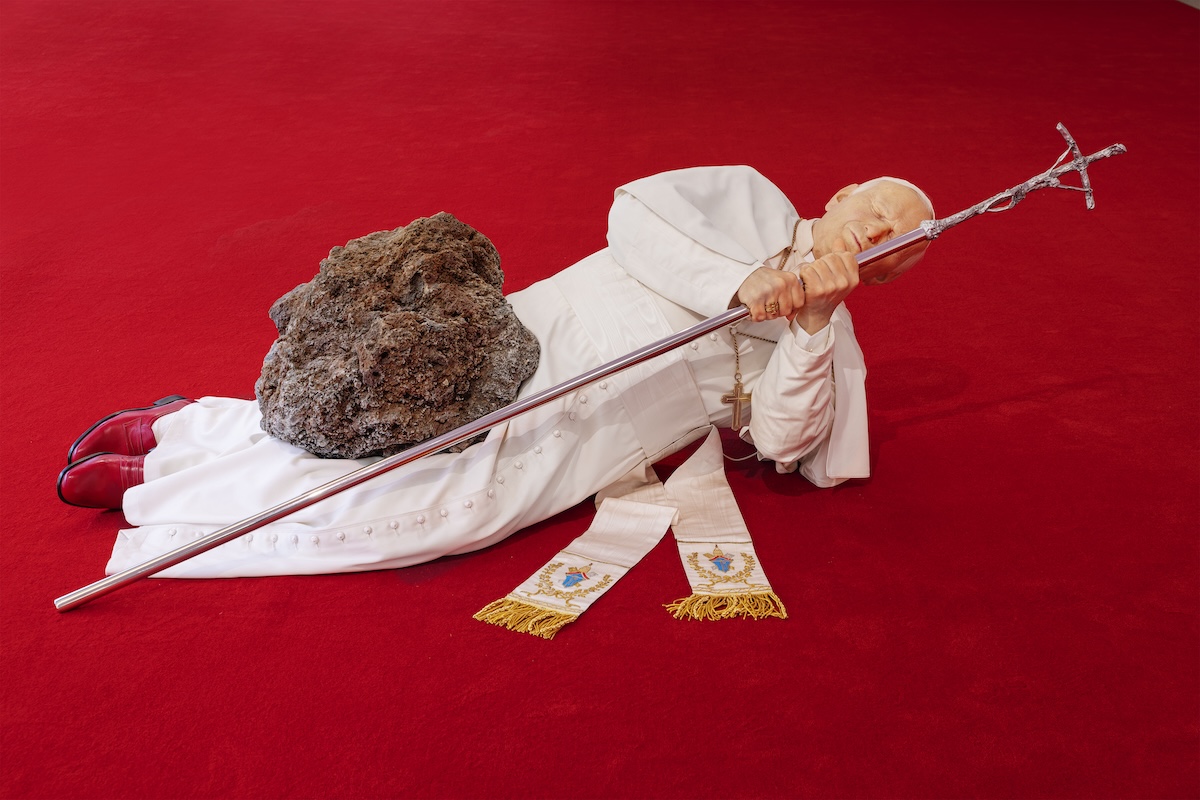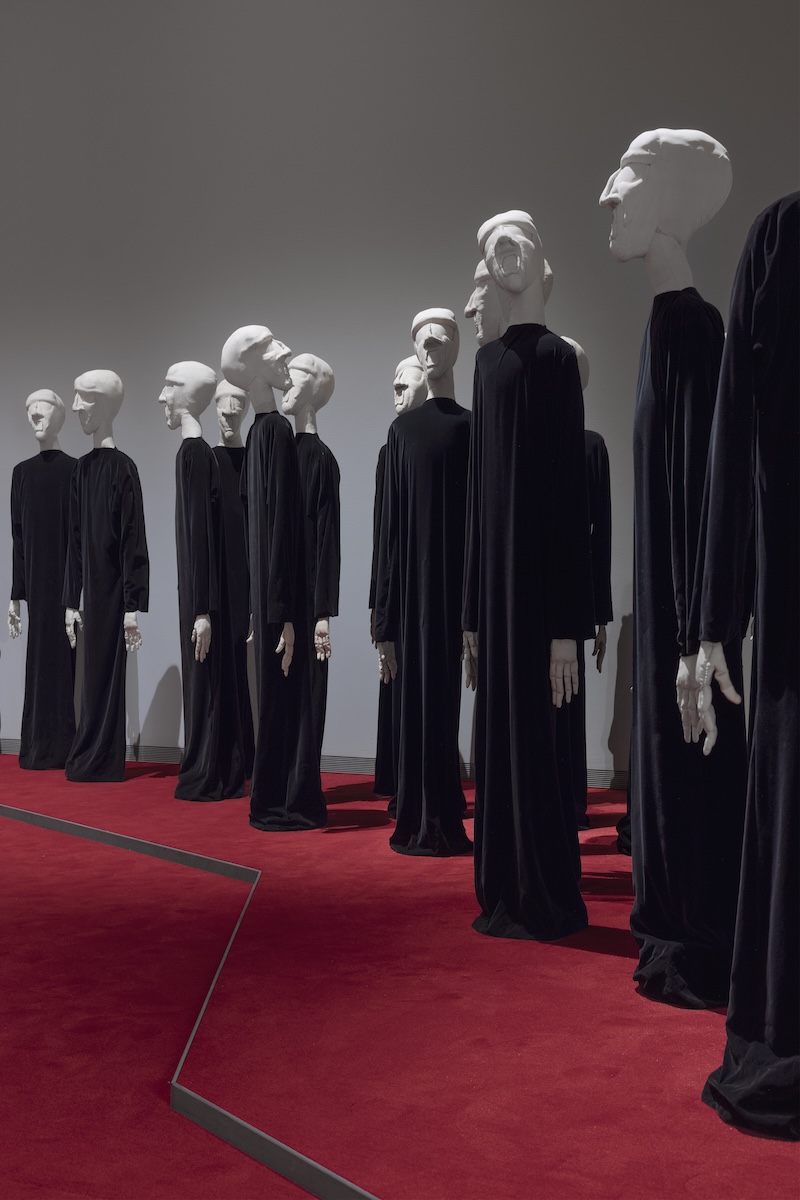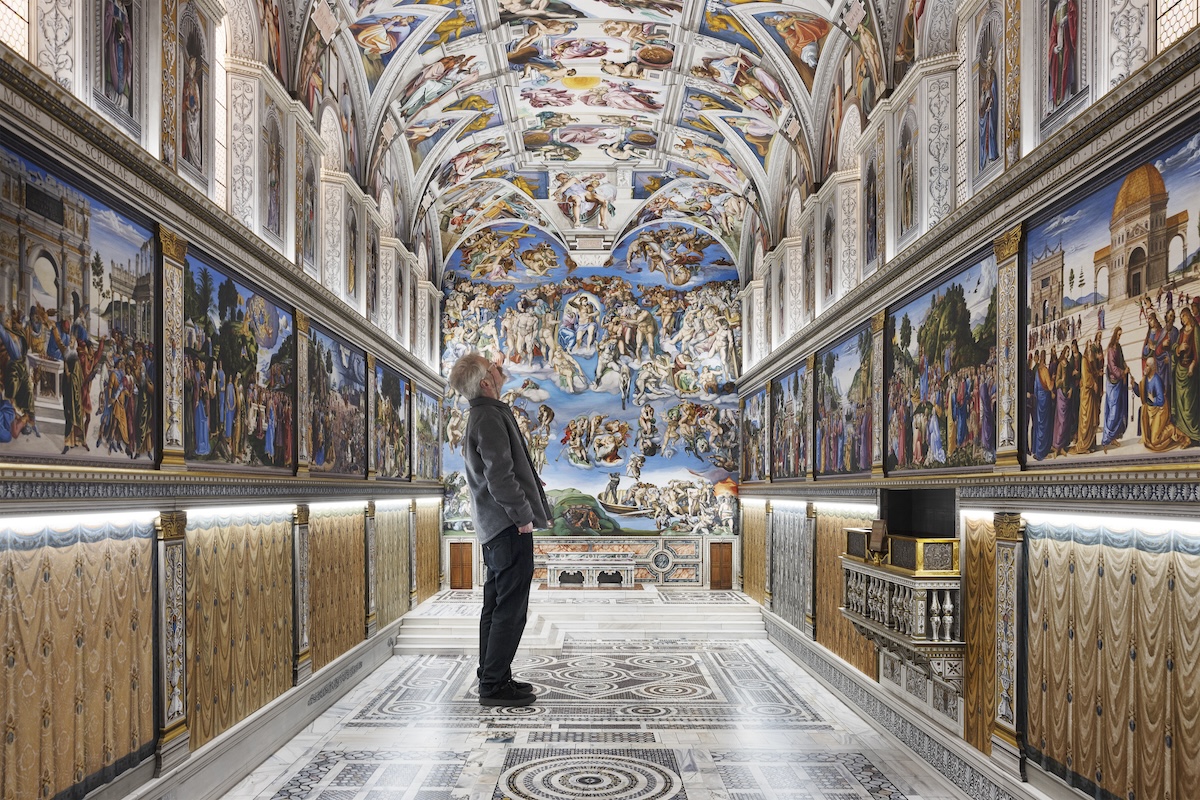THE THIRD HAND: MAURIZIO CATTELAN AND THE MODERNA MUSEET COLLECTION
HAPPENINGText: Victor Moreno
New York-based, Italy-born contemporary artist Maurizio Cattelan (b. 1960) has brought his provocative artistic vision to the Moderna Museet in Stockholm. His exhibition, The Third Hand, showcases several of Cattelan’s most iconic works. His visually bold, sarcastic, and humorous take on societal issues is complemented by his artistic flair, as he curates some of the rooms with select pieces from the museum’s collection. Cattelan has faith in the power of art, but not in the power of institutions. “Power, whatever power, has an expiration date, just like milk”, he once said.

Maurizio Cattelan, La Nona Ora, 1999. Photo: My Matson/Moderna Museet © Maurizio Cattelan 2024
As you enter the long, expansive corridor leading to the main exhibition area of Moderna Museet, the floor turns into a red carpet. At the end of the hall, a sculpture of a man laying on the carpet can be espied. Is it the Pope? Indeed, a wax statue of Pope John Paul II struck by a meteorite — originally exhibited in 1999 at Kunsthalle Basel — welcomes you to the exhibition. Cattelan’s wax works are among his most iconic pieces, along with the fully functional 18-karat gold toilet exhibited at the Solomon R. Guggenheim Museum in New York. There is something spectral about the wax figures and stuffed animals that frequently appear in Cattelan’s work. They are deeply warm and lifelike, yet unmistakably cold and lifeless. The satirical piece depicting a fallen Pope, dressed in his holy vestments and holding a silver cross, struck down by a meteorite, invites contemplation of divine intervention, ultimately challenging and revoking the perceived power of the divine and holy. Humorous and intriguing, Cattelan uncovers power structures and challenges them.

Eva Aeppli, Groupe de 48, 1969-1970. Photo: My Matson/Moderna Museet © Eva Aeppli 2024
As you enter the exhibition, the welcoming room is dark, featuring a group of fabric cardinals reminiscent of Edvard Munch’s classic painting, “The Scream.” These figures, with their ghostly aspects and gaping mouths, are part of Swiss artist Eva Aeppli’s work “Groupe de 48” from the Moderna Museet Collection. Overlooking them are sculptures of pigeons, one of Cattelan’s iconic works, commonly seen in the streets and plazas of Rome, scattered throughout the room. In fact, the room leads into the entrance of a replica of the Sistine Chapel in the Vatican, where pigeons are commonly part of the landscape. Only six people at a time can enter this small room, where Cattelan channels Michelangelo’s work on the walls and ceiling. “Copying is an act of love,” explains Cattelan, yet something transformative occurs to the hall of power when it shrinks and the perspectives shift.

Maurizio Cattelan, Untitled, 2018. Photo: My Matson/Moderna Museet © Maurizio Cattelan 2024
On the other side of the wall is a new room featuring a selection of Swedish works, with a special focus on PUSS, a Swedish underground magazine seens by many as leftist publication questioning capitalism and the U.S imperialism but not afraid of ridiculing the left too. Active between the late 1960s to the 1970s, PUSS satirized social politics and critically examined politicians and opinion leaders. Cattelan, a connoisseur of independent publications, whom together with Pierpaolo Ferrari and art direction by Micol Talso, in 2010 co-founded the picture-based magazine TOILETPAPER. The works exhibited in this room reflect a desire for change and critiques power structures, themes that resonate deeply with Cattelan’s own practice.
Read more ...





